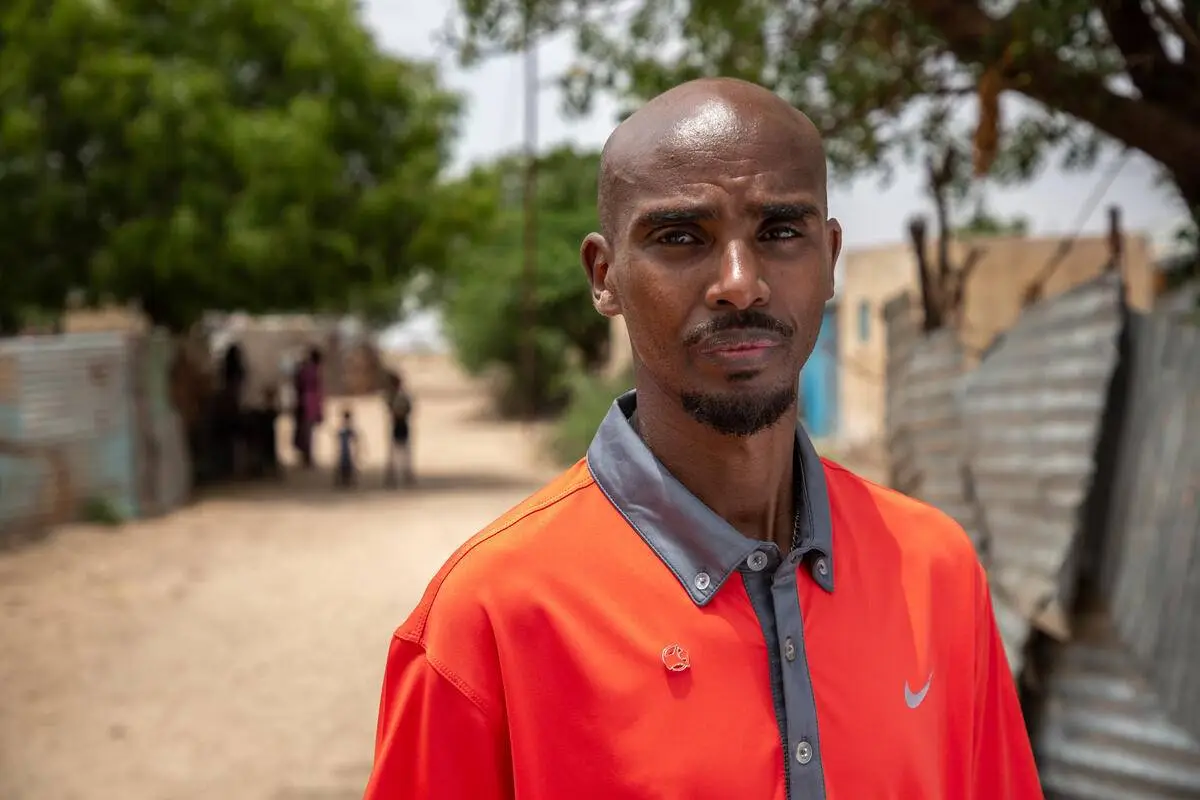Save the Children Ambassador Sir Mo Farah travelled to his birthplace, Somaliland with Save the Children to see first-hand, the devastating toll of climate change and malnutrition on children and families on 29 May, 2024 [Mustafa Saeed / Save the Children]
Save the Children Ambassador Sir Mo Farah visits villages in his birthplace Somalia where families are struggling to cope with recurring drought and flooding which has led to rising malnutrition among children [Save the Children]
It is heartbreaking to witness the devastating impact climate change is having on driving up child malnutrition rates in Somaliland, Sir Mo Farah said after a trip back to his birthplace.
The Save the Children ambassador and our-time Olympic gold medallist visited Gabiley in Somaliland where he spent his early years, meeting mothers and their children who were receiving treatment at a health centre run by the charity.
There, mothers told him of how recurring droughts and floods caused by climate change had made it difficult to feed their families. This has resulted in dangerously deteriorating health with nearly seven million people – or about 40 per cent of the population – in need of humanitarian assistance.
The 41-year-old also heard how mothers had been forced to make the painstaking decision to leave some of their children behind in order to secure care for others.
“It’s absolutely heartbreaking to see children in these conditions through no fault of their own. I can’t imagine having to leave any of my children behind to find treatment for another one – it’s an impossible choice. I’m in awe of the strength and determination of these mothers who will do anything for their children in such difficult circumstances,” Farah said.
Somalia is ranked as the second most vulnerable country to climate change and has experienced back-to-back crises of increased droughts then flooding over the past few years.
Prolonged droughts have destroyed crops and livestock, causing extreme food insecurity which, combined with conflict, has forced about 3.8 million people from their homes.
Five consecutive failed rainy seasons have left four million people in Somalia facing acute food insecurity and almost two million children at risk of acute malnutrition. In 2022, 43,000 excess deaths are estimated to have occurred in Somalia because of the drought – half of which are likely to have been children under five.
More recently, heavy rains and flash floods have affected 226,000 people in Somalia, two thirds of them children, while thousands of families have lost their livelihoods.
“It’s awful to hear that families haven’t eaten for days. Most of them told me they don’t know where their next meal will come from. They just want to put their children first, they’re not even thinking about themselves – they’re thinking, is my child going to eat today? Will they have clean water? Will they even have any water? One of the main reasons this is taking place is because of climate change, which seems to have only become worse over the last few years,” Farah explained.














